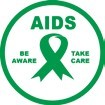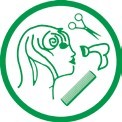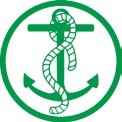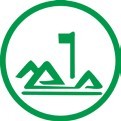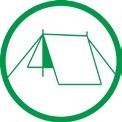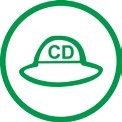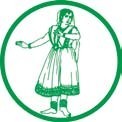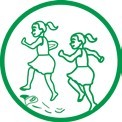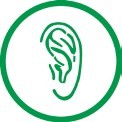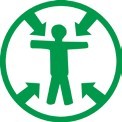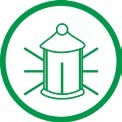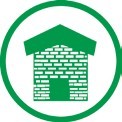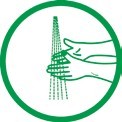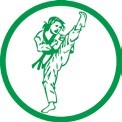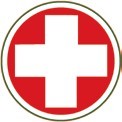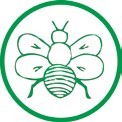 |
|---|
| Cook Requirements |
|---|
| Know the necessary ingredients of a balanced diet. |
| Know how to buy provisions, vegetables, etc., and draw up a priced and dietetically sound menu to include quantities required for a camp of a week’s duration for at least one patrol of 6 guides. |
| Make a proper cooking place, lay and light a fire using chullah, trench, etc., and cook 5 local standard dishes, including two beverages, as prescribed by the examiner. |
| Serve food in a proper manner. |
| Know how to store provisions in a hygienic manner. |
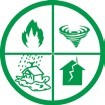 |
|---|
| Disaster Management Requirements |
|---|
| Know the definition of Disaster and Hazard. |
| Know various types of Disaster expected in their area – Natural and Manmade. |
| Know about different agencies working on Disaster Management. |
| Have the basic knowledge of Civil Defence and Fire Brigade. |
| Be able to explain what Disaster Preparedness is and list out different tips for Disaster Preparedness. |
| Know the safety knowledge – at Home, Industry, Traffic. |
| Describe accident-prone areas at roads, bathing places, places of gathering, etc., in your locality. |
| Be able to establish Messenger Service, including sending messages through Fax, Telephone, Telex, SMS, Email, YouTube, Facebook, and reporting local situations in case of Disasters. |
| Know the role of media in Disaster Management. |
| Be able to state rehabilitative methods and find out Government Agencies and NGOs that can support. |
 |
|---|
| Domestic Services Requirements |
|---|
| Demonstrate sweeping, dusting, scrubbing out a room properly, keeping floors and walls clean and in good condition, washing up kitchen and food utensils. |
| Clean ventilators, shutters, furniture, and windows. |
| Clean and polish brass, copper, silver, and aluminium pots. |
| Show how to remove grease marks, tar, paint, and ink stains. |
| Serve a meal according to individual custom for two persons. |
| Must know how to prevent harmful insects such as mosquitoes, ants, moths, cockroaches, white ants, silverfish, and bed bugs. |
| Arrange flowers. |
| Know how to make out and send and receive a money order. |
| OR Know how to call up and answer a telephone correctly. |
 |
|---|
| Drug Awareness Requirements |
|---|
| Be aware of the various types of drugs, both proprietary and clandestine, that can be abused. |
| Understand the terms addiction, dependence, withdrawal, and tolerance. |
| Know the dangers to health of drug abuse. |
| Understand how and why people get addicted to drugs. |
| Plan a drug awareness programme. |
| Know the different modes of help available to drug addicts. |
 |
|---|
| Farmer Requirements |
|---|
| Must work on a farm for at least two months. |
| Have a practical knowledge of modern farm machinery and farm implements. |
| Have knowledge of improved seeds, fertilizers, manures, insecticides, sowing, and harvesting. |
| Show an acquaintance with the routine seasonal work on a farm, including the care of cattle, horses, sheep, pigs, or poultry. |
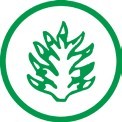 |
|---|
| Fireman Requirements |
|---|
| Hold the Ambulance Badge. |
| Fire Prevention: Have fire prevention knowledge on the following subjects: |
| Airing, bedding and linen, hot ashes, boiling over of fat/oil. |
| Candles, children playing with fireworks and matches, gas (various types), lamps, smoking and dropping lighted matches. |
| Petrol, spirit fire, stove oil, gas, electric fires. |
| Flannelette, Christmas decorations, curtain fires, costumes involving cotton, wool, and inflammable materials. |
| Motor-car fires, detecting gas leaks, cleaning house with spirit, furniture polish. |
| Ventilation at fires, celluloid toys and articles, iron, chimney fires, forests, and campfires. |
| Fire Extinction: |
| Calling the Fire Brigade by fire alarm, telephone, or messenger. |
| What to do pending the arrival of the Fire Brigade. |
| Use of buckets, different types of extinguishers. |
| Use of fire hose and hydrants. |
| Rescue Work: |
| Knowledge of secondary means of escape. |
| Fireman’s lift and carrying the injured. |
| Improvising ropes, Chair-knot, lowering of lines. |
| Jumping sheet, crawling through smoke. |
| How to drag an insensible person (describe and demonstrate). |
| How to use a chute escape. |
| Warning inmates. |
| Precautions at entertainments, theatrical performances. |
 |
|---|
| Florist Requirements |
|---|
| Know the wild flowers, reeds, and grasses common in her neighborhood (or for town Guides, in a suitable area chosen by herself), the place in which they are found, and their habits. |
| Have a knowledge of the different methods of seed distribution. |
| Know some of the local names and have a knowledge of the use and properties of twelve flowering plants. |
| Make an arrangement using flowers, ferns, leaves, etc., in the presence of an examiner. |
| Know how to preserve and transport flowers. |
 |
|---|
| Friend to Animals Requirements |
|---|
| Have a general knowledge of the habits, food, and overall well-being of the following animals: |
| Horse or donkey |
| Sheep or goat |
| Dog or cat |
| Bull or camel |
| Cow or buffalo |
| Be able to recognize any form of cruelty or ill-treatment to which these animals may be subjected. |
| Know the common minor ailments of at least one of the above animals and the simple remedies that can be used. |
| Have kept a pet in good condition, ensuring its comfort and health. |
| Have an elementary knowledge of what to do in case of accidents involving animals. |
| Know the address of the nearest **S.P.C.A. (Society for the Prevention of Cruelty to Animals)** or **Blue Cross** office. |
 |
|---|
| Gardener Requirements |
|---|
| Dig a piece of ground not less than 12 sq. meters. Plant and grow successfully six kinds of vegetables or flowers from seeds or cuttings. (In cities where digging is not possible, wooden cases or pots may be used.) |
| Know the names of twelve plants commonly found in an ordinary garden and understand what is meant by pruning, budding, grafting, and manuring. |
| Demonstrate any one of the following: pruning, budding, or grafting. |
| Adopt a public park or a neighbour’s courtyard and take care of the garden plants for at least 2 months. |
| Note: In cities, a rooftop garden can be an alternative. |
 |
|---|
| Gymnast Requirements |
|---|
| Guides should not enter for this badge unless they have been taught by a trained gymnast. |
| Under 16 Years: |
| Have a good upright carriage and walk and run well. |
| Perform to command a table of free-standing exercises. |
| Be able to jump 1 meter high in good style. |
| Be able to walk along the narrow side of a balancing bar, both forward and backward, with good posture. |
| Do three of the following in good style: |
| Climb a rope at least 4 meters. |
| Somersault through and between two ropes. |
| Handstand against a wall. |
| Reverse hanging on wall bars or improvised apparatus. |
| Sideways traveling on bar. |
| Do three of the following in good style: |
| Cartwheel on right and left hand. |
| Through vault (i.e., squat). |
| Leapfrog over high back. |
| Wolf or Jack-in-the-Box. |
| Bunny vault over a box or two forms. |
| Over 16 Years: |
| Have a good upright carriage and walk and run well. |
| Be attending gymnastic classes at school or some other approved physical training at least once a week. |
| Perform a table of free-standing exercises approved by the examiner. |
| Perform a table of the following in good style on the narrow side of a balancing bar: |
| Walk forward throwing and catching a ball at every step. |
| Walk sideways without support. |
| Stand on form, lift arms and right leg sideways, replace, step forward, and repeat, raising the other leg. |
| Walk with knees fully bent and stretch every third step. |
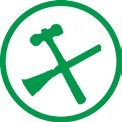 |
|---|
| Handy Woman Requirements |
|---|
| Work a sewing machine and understand cleaning, putting in a needle, oiling, etc. |
| Replace gas or petrol mantles, electric bulbs, or clean, trim, and fill an oil lamp. |
| If gas, water, or electricity is laid on in her home or school, know where and how to turn them off at the main. |
| Thoroughly clean and repaint the inside of a bathtub, table, door, windows, or equivalent (two coats at least). |
| Apply collator to a wall or floor. |
| Repair a charpoy or replace newar on a bed. |
| Repair the following: |
| Mosquito-net. |
| A bamboo chick. |
| China. |
| Splice a handle or pole by gluing or whipping. |
| Splice a rope. |
| Glue wood. |
| At the examination: Do up a parcel neatly and sharpen a knife on a grindstone, whetstone, or hone. Also, complete four of the following: |
| Make and attach bed frames for a mosquito-net, or fix a curtain rod and hang a curtain. |
| Mend a saucepan or equivalent and bring it to the examination after at least a week’s use. |
| Lay linoleum or chatai that reaches the walls of a room. |
| Remake a mattress or quilt. |
| Prepare and replace a door stop or window stop. |
| Renew a washer of a tap. |
| Mount, frame, and back a picture (A ready-made frame may be used). |
| Stain and polish a wooden article. |
| Make a cupboard out of a packing case. |
| Mend a fuse, attach a lead wire to a wall plug, and repair a severed lead wire. |
| Re-cane a chair. |
| Put a pane in a window. |
| Re-upholster a small chair or stool. |
| Renew canvas on a deck chair. |
| Make a hammock, badminton net, or equivalent in netting. |
| White-wash a ceiling. |
| Make a useful article for the house, showing the use of screws and correct nails. |
| Handle a primus stove. |
| Note: The examination can be spread over a period of time so that the guide completes tasks needed in the house rather than producing items just for the test. |
 |
|---|
| Health Requirements |
|---|
| Know the general rules of health with reference to eyes, ears, teeth, nose, eating, drinking, sleeping, and breathing. |
| Understand the importance of keeping the lungs, skin, teeth, feet, digestive, and pelvic organs in good condition. |
| Know the dangers of an unhealthy diet and the use of tobacco, alcohol, and other intoxicating drugs. |
| Know the value of fresh air and how to keep rooms well ventilated. |
 |
|---|
| Heritage Requirements |
|---|
| Preparing a scrapbook with illustrations and information on the following: |
| Nature, heritage, and culture: Collecting songs, poems, riddles, proverbs, and short stories about their state and its natural heritage. |
| Seasons and festivals: Understanding their meaning and significance. |
| Different communities and tribes in the state. |
| Physical environment of their locality (famous hills, rivers, etc.). |
| Common trees of their state. |
| Common plants and their uses. |
| Common birds. |
| Flora and fauna of the region. |
| Art of India and their State: |
| Important heritage buildings and places of worship. |
| Music and musical instruments. |
| Dances and theatre forms. |
| Puppetry, literature, and famous writers/poets of their town. |
| Traditional food and costumes (then and now). |
| Practical Work: |
| Visiting monuments or museums and maintaining a record. |
| Keeping an illustrated historical diary of their town or village (any 3 of the following): |
| Preparing a list of museums, art galleries, and cultural centers in their district/town. |
| Visiting monuments and sites, identifying problems, and suggesting preservation solutions. |
| Adopting a site (monument, religious place, lake, or temple) and looking after it for one month. |
| Learning to serve as a guide for local schools and community visits. |
| Knowing about government and non-government agencies involved in cultural and heritage preservation. |
 |
|---|
| Hiker Requirements |
|---|
| Build and give reasons for constructing three different types of hike fires, and distinguish various kinds of woods and their relative value as firewood. |
| Show proficiency in cooking in the open with and without utensils and draw two hike menus. |
| Bring to the examination a pocket first aid case fitted up by herself for a hiking expedition, and explain the choice of its contents. |
| Bring a log book giving a description of previous hikes, including sketch maps and notes on observations made. |
| Know precautions for lighting fires in the open and the responsibilities regarding trespassing, gates, and crops. |
| Be able to handle the following situations: |
| Helping a stranger. |
| Assisting a lost child. |
| Rescuing an animal in distress or starving. |
| Know what to do in the event of being: |
| Left in a fog. |
| Caught in a thunderstorm. |
| Left near a jungle. |
| Caught in a forest fire. |
| Undertake a hike of 20 km on foot or 50 km on a bicycle and submit a report. |
| Note: The candidate will be judged on her method, kit arrangement, and cleanliness. The hike party should not exceed one patrol. The examiner must be a qualified person appointed by the District Commissioner. |
 |
|---|
| Home Maker Requirements |
|---|
| Must rise early, light a fire or clean shoes (her own and someone else’s), lay breakfast, and make and air a bed satisfactorily for a week consecutively. |
| Know how to clean a fireplace or properly clean a gas stove. |
| Understand and have practiced cleaning cooking and household utensils, and washing up. |
| Bring a sample of jam, pickles, or chutney made at home entirely by herself. |
| Be able to mend household linen, clothes, and curtains. |
| Be able to do shopping and errands for the household satisfactorily. |
| Open a packing case, hang curtains, and arrange flowers decoratively. |
| Must bring a certificate from her parents or guardian stating that she has been tidy, thorough, obedient, and helpful in the home. |
| Understand the care of milk vessels. |
 |
|---|
| Hostess Requirements |
|---|
| Note: This badge may be sewn on the Patrol flag if at least four Guides in the Patrol pass the following tests. |
| Each Guide should: |
| Know how to receive, introduce, and bid guests "Goodbye". |
| Understand the proper etiquette for greeting and farewelling guests. |
| Be able to write a letter for the following situations: |
| Inviting a guest to stay. |
| Inviting a guest to a meal. |
| Refusing an invitation. |
| Accepting an invitation. |
| Thanking for a visit. |
| State the key things to remember when entertaining guests. |
| Know how to ensure guests feel welcomed and comfortable. |
| Know how to announce guests and serve meals correctly. |
| Understand the formalities involved in announcing guests and the correct way to serve meals. |
 |
|---|
| Journalist Requirements |
|---|
| Produce a report of company/group activities. |
| Prepare a report of a lecture, debate, party, or rally. |
| Serve as a scribe on at least six occasions. |
| Edit and submit any speech or report to the examiner’s satisfaction. |
| Serve on the editorial staff of a paper or magazine for at least six months. |
| Understand printer's correction signs. |
| Prepare a press release on an important event. |
 |
|---|
| Electronics Requirements |
|---|
| Have an elementary knowledge of how a thermionic valve works as: |
| H.P. Amplifier |
| Detector |
| L.F. Amplifier in a wireless set, and also how a “Westector” works. |
| Know the functions of condenser, resistance, inductance, reaction, and mains rectifier, transformer. |
| Know how to build a cheap mains eliminator. |
| Know how to locate and cure a simple fault in a wireless set. |
| Show a working knowledge of moving coil loudspeakers, both permanent magnet and mains-energized types. |
| Draw a simple diagram showing the way to connect PA stage of “resistance coupled” L.F. amplification and another to illustrate the connections of an “L.F. Transformer” and show knowledge of the principles involved. |
| Read a technical diagram and interpret all symbols ordinarily employed. |
| Have assembled a simple wireless receiver that works satisfactorily and know all the distress signals. |
| Know the methods of charging and looking after accumulators. |
 |
|---|
| Citizen |
|---|
| Involves understanding the qualifications of voters, voting procedures, and the roles and powers of key political offices, such as the President, Vice-President, Governors, and legislative bodies (Lok Sabha, Rajya Sabha, Vidhan Sabhas, and Vidhan Parishads). |
| A citizen should also grasp local administration functions, including those of municipalities, Zilla Parishads, and panchayats, alongside a basic understanding of the judicial system. |
